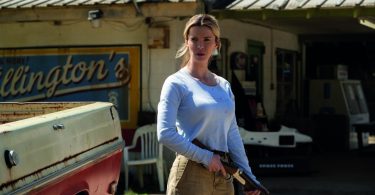I don’t know if you’ve heard, but a film score can make or break a film. This is how I watch films, anyway.
I don’t know if you’ve heard, but a film score can make or break a film. This is how I watch films, anyway. No matter how beautiful the ultra-slow motion montage is, no matter how engaging the narrative, if the music’s no good, I’m not interested. This has been a growing obsession with me for years; if you are lucky enough to have been to the cinema with me you will be well aware of this.
It wasn’t until I watched Dziga Vertov’s Man With A Movie Camera (1929) that I realised enough was enough. If you aren’t pretentious enough to have seen Man With A Movie Camera, that’s really a shame. The film itself is wonderful. However, the version I saw was screened with a score composed by the Alloy Orchestra, based upon Vertov’s notes. I don’t know if it was before or after I ripped my ears out that I realised the film should have been completely silent. The score relies heavily on synth strings, which I have a major problem with, anyway. Not only are they tinny, but they always make the music sound like it comes from a community round-up campaign. Despite the music’s reliance on awkward percussion and yawningly obvious progressions, the part which really rattled me (no, we’re not there yet) was that it completely cheapened Vertov’s incredible camera work. And that really was a tragedy.
The importance of a film score in relation to the success of a film is paramount. Whether you actively listen to the music, or just let it all wash over you, it undeniably affects your connection to every aspect of the film. The film score came into its own as an economic enterprise during Hollywood’s Golden Age (from the late 1920s until the early 1960s). This was a time in which film composers were chewed up and spat out, not only under enormous amounts of pressure to compose something original, but also to write music which was appropriate to the film’s content. Inevitably, it led to the feeling that the film score could be responsible for rescuing a mediocre film and that poor chemistry between the leading roles could be glossed over by a romantic surge in the string section. Of course, it wasn’t all like this.
Hollywood was responsible for some of the most important and influential composers in the film industry. Without these composers, film music would not be where it is today. Franz Waxman, a European émigré, came to Hollywood in 1934 and soon began to score horror films. Waxman’s use of dissonant strings and repetitive percussive ostinati are still used in the scoring of horror films today. Although spiky, clashing strings are now a horror film cliché, at the time such a technique was largely unheard of in the world of music.
Despite Waxman’s heroic contributions to the music of horror films, it is in such films that the worst examples of music can quite often be heard. Wojciech Kilar’s score to Roman Polanski’s 1999 horror film, The Ninth Gate consistently troubles me. I’m a Kilar fan, obviously, and his score on the whole is wonderful. Lazy cello suspended notes are played beneath ever-drowsier chromatic sequences heard in the upper strings. Perfect. It’s when you get to the chase scenes that the trouble begins. Kilar relies on the outdated sporadic piano bass line to create ‘tension’. At best, it causes annoyance. Not because it doesn’t go anywhere, but when the other music is so good, it leaves you wondering why-oh-why could Kilar reasonably include this in his score?
Another movie guilty of B.A.D. scoring is Michael Radford’s 1984 film, Nineteen Eighty Four. Orwell’s classic thriller of man against machine was scored by none other than ‘80s pop rock duo, Eurythmics. Huh? Yes, Virgin Films commissioned Eurythmics to score the film, despite Radford’s protestations. In fact, the film had also been scored (more classically) by Dominic Muldowney a few months earlier, but Virgin Films replaced Muldowney’s score with the electro-pop ramblings of Eurythmics. Just hearing thirty seconds worth of this score in conjunction with John Hurt’s tortured rendition of Winston Smith is enough to make you want to cry. I recommend ‘Sex Crime’, if you’re planning on doing this.
I do, however, still love the film score. Watching Nicolas Winding Refn’s Drive last year thoroughly restored my faith that there is good music out there. The film is scored by Cliff Martinez and peppered with ‘80s sounding electro pop songs from the likes of Kavinksy, College and Desire. Polish composer Zbigniew Preisner also knows how to work the film score. Working in collaboration with Krzysztof KieÅ›lowski means that, as an audience, we get the best of both worlds.
Director/composer relationships are incredibly important in retaining the mood of the image and aiding filmic expression. Preisner’s score for KieÅ›lowski’s 1993 film Blue (from The Three Colours Trilogy) is perhaps one of the most sympathetic to the image. The protagonist of the film grieves for her dead husband; so great is this grief that she literally blanks out at time, which is mirrored by a similarly black screen. During these moments we hear a short melody played unaccompanied on the piano. These musical interludes convey pure emotion. Nothing has to be said, the music suffices. After watching films with scores such as these, I am also left speechless, which is testament to the symbiosis of image/music. After all, why do you need words when the music says it for you?








